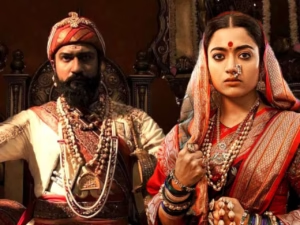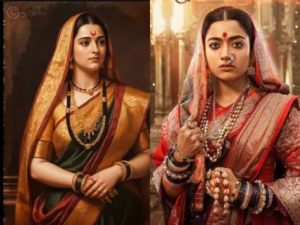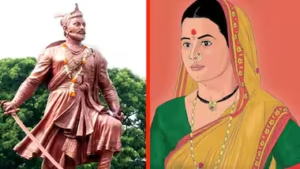
Maharani Yesubai: The Courageous Queen Who Upheld the Maratha Empire 2025

The annals of Indian history are adorned with tales of valor, resilience, and leadership. Among these, the story of Maharani Yesubai Bhonsale stands out as a testament to the strength and determination of a queen who played a pivotal role in safeguarding the Maratha Empire during its most turbulent times. As the wife of Chhatrapati Sambhaji Maharaj, Yesubai was not just a consort but a leader, a strategist, and a symbol of unwavering courage.
AI Legislative
Early Life and Marriage

Born as Rajau Shirke in 1658 to Pilajirao Shirke, a prominent Maratha Sardar, Yesubai hailed from a family deeply rooted in the traditions of valor and loyalty. Her marriage to Sambhaji Maharaj in 1664 was not just a union of two individuals but a strategic alliance that strengthened the Maratha Empire. This alliance brought together two powerful families, further consolidating the Maratha rule under the visionary leadership of Chhatrapati Shivaji Maharaj, Sambhaji’s father.
Yesubai’s life took a dramatic turn when she became the chief queen consort of the Maratha Kingdom in 1680, following the coronation of Sambhaji Maharaj as the Chhatrapati. Her role as a queen was not confined to ceremonial duties; she actively participated in the administration and decision-making processes, showcasing her acumen and leadership skills.
A Pillar of Strength During Adversity

The year 1689 marked a dark chapter in the history of the Maratha Empire. Chhatrapati Sambhaji Maharaj was captured and brutally executed by the Mughal Emperor Aurangzeb. This devastating event left the Maratha Empire vulnerable and leaderless. In the face of this immense tragedy, Maharani Yesubai emerged as a beacon of hope and resilience.
Despite the loss of her husband, Yesubai refused to succumb to despair. She took charge of the situation, ensuring the stability of the empire and the safety of her people. Her leadership during this period was instrumental in preserving the Maratha spirit of Swarajya (self-rule) and resistance against Mughal oppression.
Years of Captivity and Unyielding Resolve

Following Sambhaji Maharaj’s execution, Yesubai and her young son, Shahu Maharaj, were taken captive by Aurangzeb. They endured 27 years of imprisonment, a period marked by immense hardship and uncertainty. However, Yesubai’s indomitable spirit remained unbroken. She maintained her composure and dignity, even in the face of adversity, and continued to inspire her fellow Marathas.
During her captivity, Yesubai played a crucial role in keeping the Maratha Empire united. She communicated secretly with Maratha leaders, ensuring that the resistance against the Mughals continued unabated. Her efforts bore fruit when her son, Shahu Maharaj, was eventually released in 1707, following Aurangzeb’s death. Shahu Maharaj’s return marked the beginning of a new era for the Maratha Empire, one that was shaped by the sacrifices and resilience of his mother.
Legacy and Contributions

Maharani Yesubai’s legacy is one of courage, wisdom, and unwavering dedication to her people. Her contributions to the Maratha Empire extended beyond her role as a queen and mother. She was a skilled diplomat who played a key role in negotiating the Treaty of Varanasi in 1730, which brought peace and stability to the empire during a time of internal strife.
Yesubai’s life is a shining example of the strength and resilience of Indian women in history. Her story continues to inspire generations, reminding us of the power of determination and the importance of standing firm in the face of adversity.
In Popular Culture

Maharani Yesubai’s remarkable life has been celebrated in various forms of art and literature. Her character has been portrayed in films, television shows, and historical dramas, bringing her story to a wider audience. Most recently, actress Rashmika Mandanna brought Yesubai to life in the movie “Chhaava,” earning widespread acclaim for her portrayal of this iconic queen.
Maharani Yesubai’s story is a testament to the enduring spirit of the Maratha Empire and the indomitable will of its leaders. Her life serves as a reminder that true strength lies not in power but in resilience, courage, and the unwavering commitment to one’s principles.





